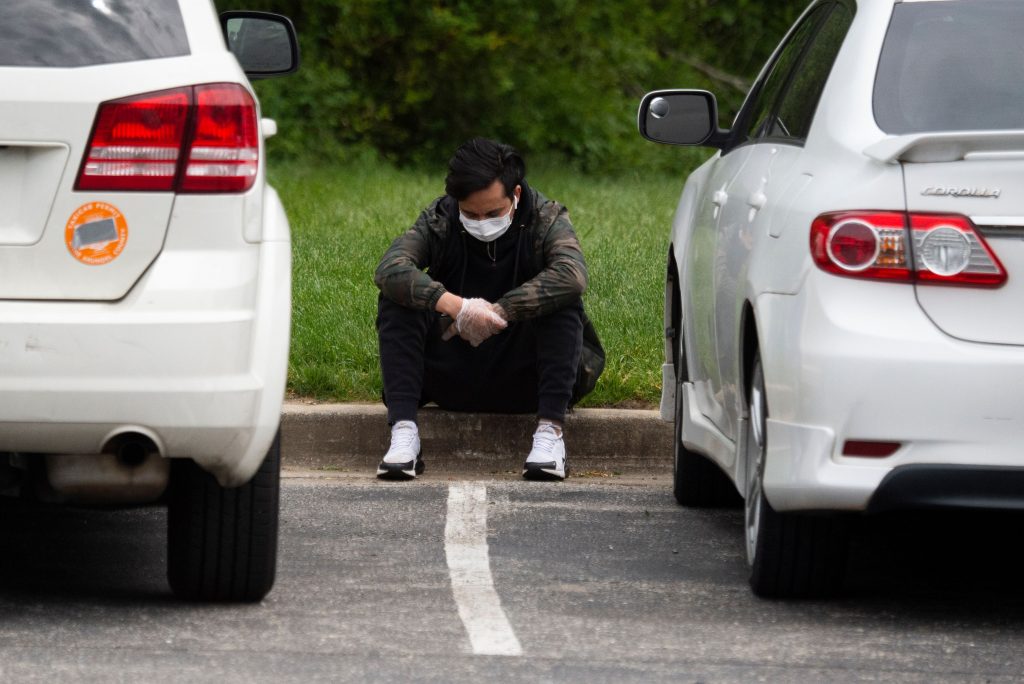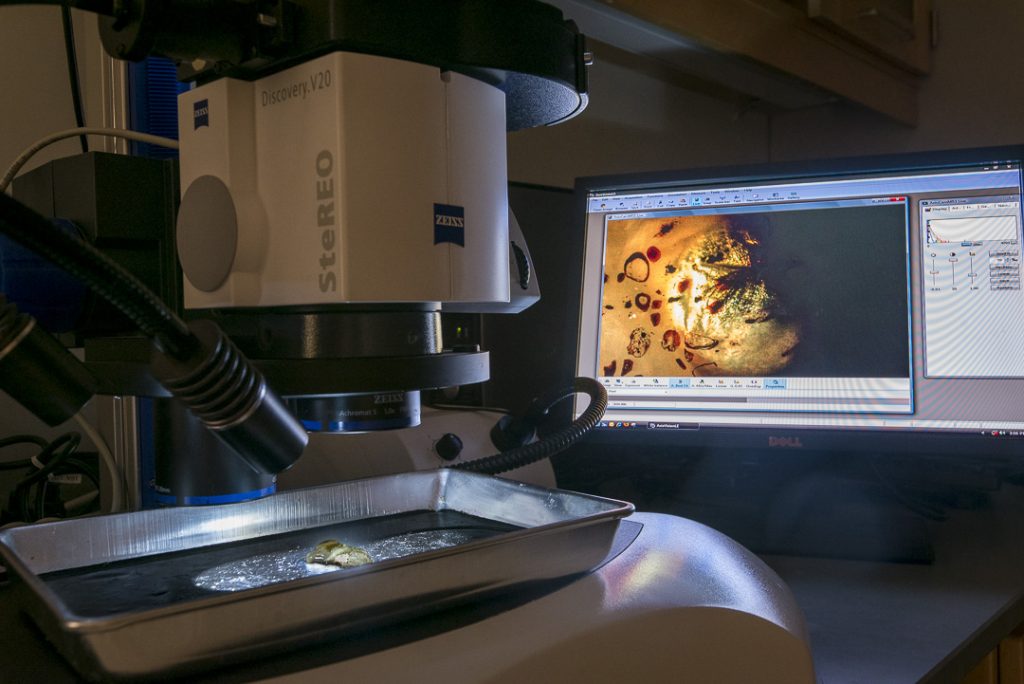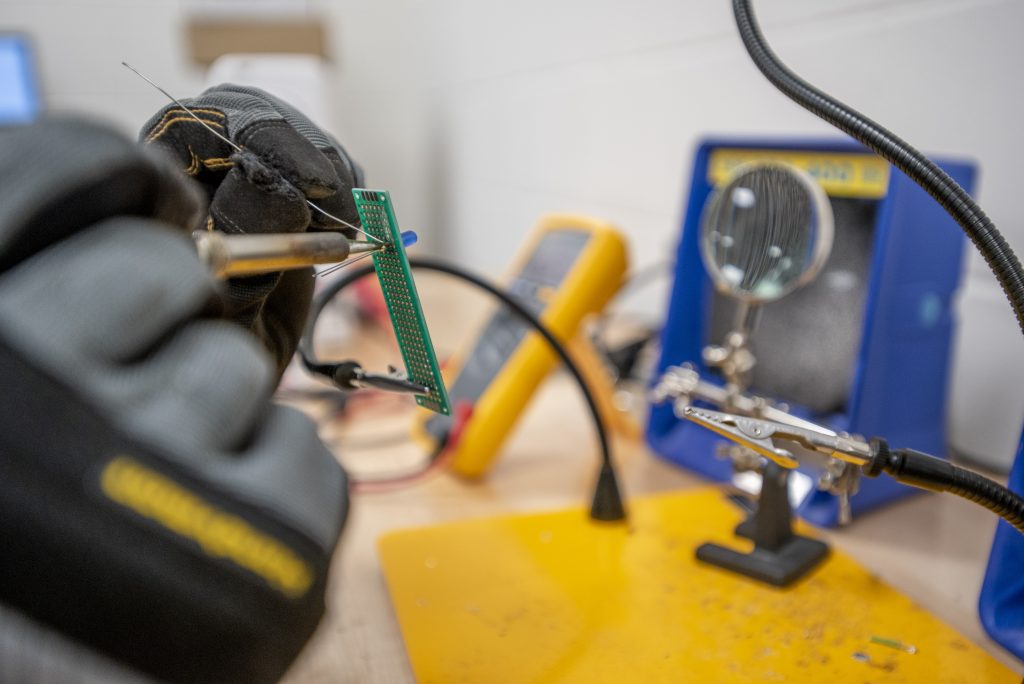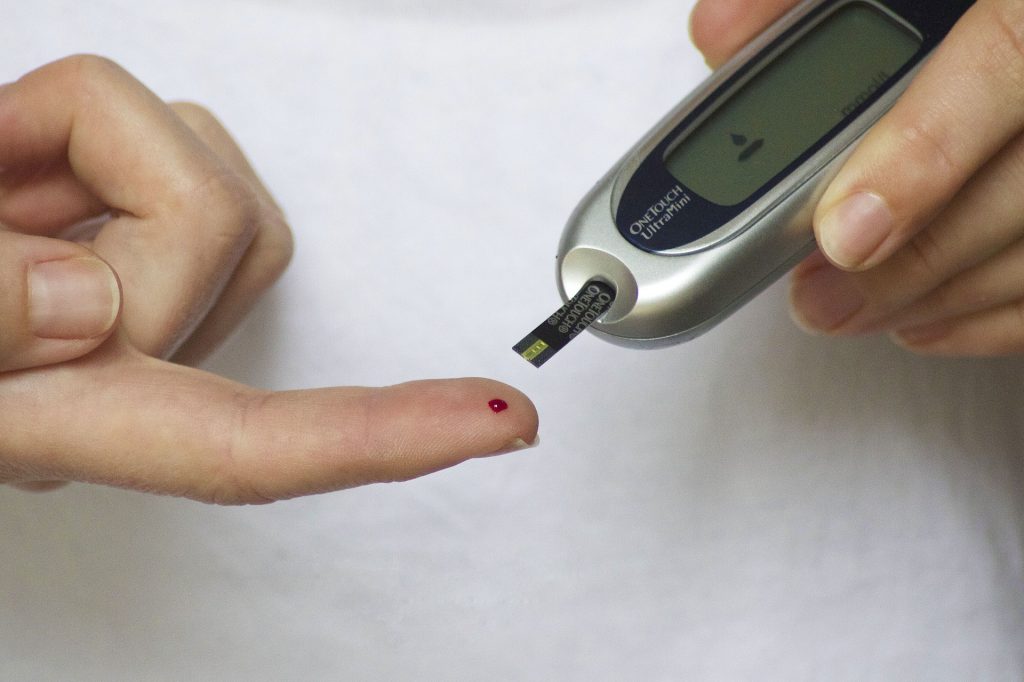
Executive Director, Office of Communications
Jessica McBride, PhD
Dr. Jessica McBride is the Executive Director of the Office of Communications at UConn's College of Agriculture, Health and Natural Resources. She is responsible for developing and implementing communications and marketing strategies to highlight the College's unique research strengths, outstanding academic offerings, and extensive community impact. An alum, Jessica earned her Ph.D. from UConn in 2017.
Author Archive
UConn and Technion Collaborate on the Development of Next Generation Fuel Cells
UConn researchers and Technion, Israel Institute of Technology, are collaborating on a game-changing platinum-free fuel cell catalysts.
June 3, 2020 | Anna Zarra Aldrich '20 (CLAS), Office of the Vice President for Research
How Americans are Coping with COVID-19 Stress
UConn researchers are studying how Americans experience and respond to stress related to the COVID-19 pandemic.
June 1, 2020 | Jessica McBride, PhD
Religion’s Influence on Child Success
An international research team including UConn's Richard Sosis received a grant from the John Templeton Foundation to examine the effects of religion on family dynamics, specifically family size and its relationship to child success.
May 28, 2020 | Samantha Korittke '21 (CLAS), Office of the Vice President for Research
UConn Microbiome Seed Fund Recipients
Through this program, the OVPR is able to provide up to $50,000 to UConn faculty to support innovative and collaborative research proposals that will lead to new proposals for extramural funding in microbiome research.
May 15, 2020 | Jessica McBride, PhD
Improving the Outlook for Ovarian Cancer Patients
A team of UConn researchers has received a $1,875,750 grant from the National Cancer Institute to determine ways to improve the outlook of ovarian cancer patients.
May 11, 2020 | Samantha Korittke '21 (CLAS), Office of the Vice President for Research
START Proof of Concept Awards Announced
Through support from the CTNext Higher Education Fund, the Office of the Vice President for Research (OVPR) has been able to administer the START Preliminary Proof-Of-Concept (PPOC) Fund to help advance promising technologies towards commercialization. The OVPR has recently finalized award decisions for the first three quarters funding rounds of the program. START recipients are […]
May 8, 2020 | Jessica McBride, PhD
UConn Health and JAX Partner to Train Future Generation of Genomic Scientists
Researchers at UConn Health and The Jackson Laboratory for Genomic Medicine are collaborating on a training program for the next generation of genomic scientists.
May 7, 2020 | Anna Zarra Aldrich '20 (CLAS), Office of the Vice President for Research
Meet the Researcher: Cheryl Beck
Cheryl Beck has devoted her research career to helping women struggling with postpartum depression and traumatic birth experiences.
May 4, 2020 | Anna Zarra Aldrich '20 (CLAS), Office of the Vice President for Research
Spring 2020 Scholarship Facilitation Fund Announcement
Through this program, the OVPR is able to provide up to $2,000 to UConn faculty across all disciplines, on a competitive basis, to promote, support, and enhance research, scholarship and creative endeavors.
May 1, 2020 | Jessica McBride, PhD
UConn Health Researcher Investigates Potential Therapeutic Target for Insulin Resistance
Ming Xu, a researcher in UConn's Center on Aging has received a $2.2M from the NIH to study pathways related to insulin resistance.
April 30, 2020 | Anna Zarra Aldrich '20 (CLAS), Office of the Vice President for Research









